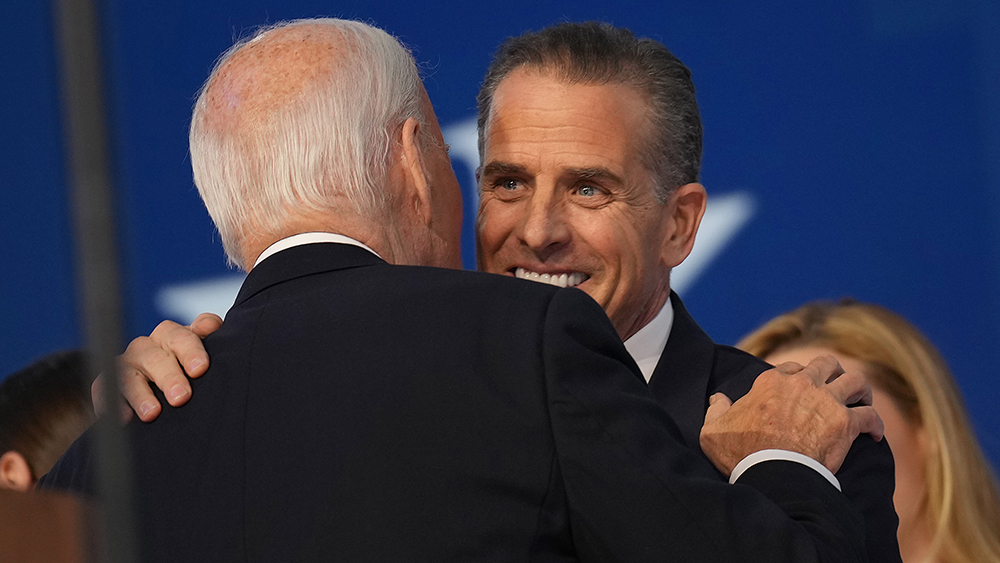Should Mahmoud Khalil be deported?
I argued yesterday that Mahmoud Khalil, the ex-Columbia grad student and pro-Palestinian activist snatched by ICE, had been illegally detained, and was facing deportation, simply for exercising free speech. That of course was my first reaction, and I explicitly said I didn’t know what else he was being charged with, or what evidence the government … Continue reading Should Mahmoud Khalil be deported?

I argued yesterday that Mahmoud Khalil, the ex-Columbia grad student and pro-Palestinian activist snatched by ICE, had been illegally detained, and was facing deportation, simply for exercising free speech. That of course was my first reaction, and I explicitly said I didn’t know what else he was being charged with, or what evidence the government had.
We even had a pro-Palestinian demonstration on campus yesterday, though it involved were issues besides Khalil. Still, the deportation has caused cognitive dissonance in many of us who detest pro-Hamas demonstrations or sentiments: Khalil was clearly a public espouser of Palestinian terrorism, but that espousal is not a violation of free speech. The big questions are a). did Khalil do more than simply verbally espouse terrorism, a “more” that would make him subject to laws that could cause his deportation? and b.) are those laws just?
I’m not going to adjudicate question b.) as I’m not a lawyer or judge and don’t know the historical underpinnings of the U.S. Code that deals with “aliens,” as they call them. As for a.), well, let’s hear what venues who want Khalil deported say.
I’ll highlight posts from three sites: the National Review (conservative) the Elder of Ziyon (pro Israel), and City Journal (conservative). All three ultimately claim that Khalif was not only lawfully detained, but that deporting him is a no-brainer. I’ll simply give you their arguments and then my own conclusion based on their pro-deportation stands, which I see as the strongest arguments for deportation I can find.
The National Review actually had two articles on Monday by Andrew McCarthy. The first (archived here) dealt largely with Khalif’s alleged activities and the second (first headline below) arguing that those activities meet the standards for deportation. In contrast, the Elder of Ziyon piece simply argues that Khalil’s membership in an organization promoting terrorism, regardless of his activities, warrants deportation. The third is similar, not detailing what Khalif actually did to promote terrorism.
But in the end all three come down to the same thing, arguing that Khalil violated the same provision of the U.S. Code §1182 on Inadmissible Aliens: section 3B.
Click if you subscribe to the National Review (or find the article archived here):
First realize that Khalil, who had a green card (and a graduate degree from Columbia) was regarded as a “lawful permanent resident alien” (LPR), giving him special rights, though not rights equivalent to those of a U.S. citizen. But he is married to an American citizen, who happens to be pregnant. He was picked up by ICE and apparently taken to Louisiana, where he was held. Two days ago, a federal judge blocked Khalil’s removal from the U.S., and there will be a habeas corpus hearing today. As far as I know, he has not been formally charged with any crimes.
This is from the first National Review article detailing the law and how what Khalil supposedly violated it:
To be sure, visas and green cards are saliently different. Unlike a mere student-visa holder, a green-card holder, such as Khalil, is an LPR. That is the highest category of alien: a non-American who has lawfully relocated to the United States and is on track to become a naturalized citizen (see §1427 of federal immigration law — Title 8, U.S. Code). In many contexts — e.g., tax law and the privacy protections — federal law deems green-card holders to be “U.S. persons,” meaning they are part of our national community. Their rights can approximate those of American citizens but, as the administration will surely argue, they are not equal to those of Americans citizens (who, of course, may not be deported).
. . . Section 1182 of federal immigration law controls the categories of aliens who may be excluded from the United States. In the category of national security, the statute mainly targets aliens who have “engaged in terrorist activity,” who are “members” of terrorist organizations, or who have received paramilitary training from terrorist organizations. Fortunately, though, there is additional latitude: An alien may be excluded if he has “endorsed” or “espoused” terrorist activity — see subsection (a)(3)(B)(i)(IV)(bb), under the subheading “Terrorist activities.” The statute defines terrorist activity to include violent attacks and the planning of such attacks. That should be sufficient to bar from entry into the United States aliens who support Hamas, which has been a designated terrorist organization under U.S. law since the mid-Nineties (when the designation process began).
. . . His most prominent role seems to have been as a negotiator of sorts on behalf of student radicals with the university administration. Objectively speaking, his activities are pro-Hamas, but I assume that if the government had strong evidence that he’d committed the crime of providing material support to a designated terrorist organization — such as recruiting or fundraising on behalf of Hamas — the Justice Department would indict him.
Fortunately, it need not be provable in criminal court that an alien agitator committed crimes in order to establish that the alien should be deported.
That is weird to me. One can violate the law, but you don’t have to prove that the law was violated to deport a green-card holder.
The second National Review article argues that Khalil should be deported because the judgement of the Secretary of State should override that of any judge:
The Supreme Court has repeatedly held that the executive branch has broad discretion when it comes to national security judgments about which aliens may be admitted and which should be expelled from the United States. Nevertheless, because §1227 says the Secretary of State must have a reasonable ground to believe the alien’s presence or activities in the U.S. could cause “serious adverse foreign policy consequences,” counsel for Khalil will argue that the court has authority to review whether Secretary Rubio’s judgment is “reasonable.”
It would be highly controversial for a politically unaccountable judge — who has no constitutional responsibility for foreign policy, national security, or immigration enforcement — to substitute the court’s judgment for that of the Secretary of State, especially one who was just unanimously confirmed by the Senate to steer American foreign policy. I do not believe a majority of the Supreme Court would abide such judicial imperialism.
. . . To repeat, §1227 incorporates by reference the “terrorist activities” provision in the exclusion statute — specifically, subsection (a)(3) of §1182, which prescribes the excludability of aliens who, among other things, represent “a political, social, or other group that endorses or espouses terrorist activity” (that’s subsection (a)(3)(B)(i)(IV)(bb) — a mouthful, I know).
But there is one free-speech-like exception in the law:
“An alien … shall not be excludable or subject to restrictions or conditions on entry into the United States … because of the alien’s past, current, or expected beliefs, statements, or associations, if such beliefs, statements, or associations would be lawful within the United States, unless the Secretary of State personally determines that the alien’s admission would compromise a compelling United States foreign policy interest. [Emphasis added.]”
This is what I argued yesterday: to me, speech alone cannot justify deportation. But author Andrew McCarthy argues that this exception is “maddening” and legally insupportable. In addition, he argues that Khalil did more than just speak: he acted:
I do not believe that Khalil’s activities in the U.S. should be deemed lawful speech and association. If reports are correct, Khalil was active as an agent of agitators who carried out lawless activities. That is not mere speech and association, and it would be unlawful if engaged in by Americans — indeed, that is why dozens of Americans were arrested in connection with the campus unrest.
I still have not heard the details of Khalil acting as an “agent of agitators,” except as a negotiator with Columbia on behalf of the two expelled students. Even if he demonstrated on behalf of Palestine or Hamas, that a statement, not a promotion of terrorism. But as McCarthy says:
. . . If the government can prove that Khalil was in a campus group that endorsed or espoused Hamas’s atrocities against Israel, it should be able to deport him regardless of his LPR status. And if it can deport him, there are likely to be thousands of others who can be deported, too — and should be.
That is also the argument of the Elder of Ziyon below, who claims that Khalil’s mere membership in an organization that foments or endorses terrorism is enough to get him deported, and the case is “airtight”. Click to read:
An excerpt:
According to 8 U.S. Code § 1227 – Deportable aliens, “Any alien who is described in subparagraph (B) or (F) of section 1182(a)(3) of this title is deportable.”The relevant part of those subparagraphs say:
The Elder argues, then, that Khalil was a “representative” of a Columbia group that endorsed terrorism:
There is no question that Khalil is a representative of Columbia University Apartheid Divest (CUAD.) He represented CUAD in negotiations with Columbia a number of times; he was interviewed on TV numerous times as its lead negotiator, he is described as one of CUAD’s leaders.
There is also no question that CUAD endorses and espouses terrorist activity. For example, on the one year anniversary of October 7, it handed out newspapers on campus called “The New York War Crimes” that included this full page “ad:”
And the Elder continues, trying to demolish the idea that Khalil was merely exercising free speech:
Besides that, CUAD chants include explicit support for Hamas (“Yes, we’re all Hamas, pig!” and “Al-Qassam, you make us proud, kill another soldier now.”) Yet even without explicit support for Hamas, CUAD has praised “resistance’ over and over again, and that “resistance” is terrorism. One example is that they praised the October 1 shooting attack in Tel Aviv that murdered seven civilians, saying “On October 1, in a significant act of resistance, a shooting took place in Tel Aviv, targeting Israeli security forces and settlers. This bold attack comes amid the ongoing escalation of violence in the region and highlights the growing resolve of those resisting Israeli occupation.”
What seems clear is that CUAD did indeed endorse terrorism. But did Khalil himself? Is his membership in the organization sufficient to show he endorsed terrorism? You could say that it certainly is, but then you are saying that Robert Oppenheimer deserved to lose his security clearance because at one time he was a member of the Communist party, which to the government implied that he endorsed the Communist plan to overthrow capitalism (Oppenheimer didn’t, of course). To me it seems necessary to give evidence that Khalil himself endorsed terrorism. Perhaps the government has that information, but I haven’t seen it. Thus I don’t find the Elder’s argument below convincing:
Even if Khalil claims that he is personally against the pro-terrorism stance of CUAD and only acted as their liaison, even if he claims that he never uttered a word of support for terror, he is CUAD’s representative by the legal definition and CUAD unambiguously endorses or espouses terrorist activity, making him subject to deportation. Free speech is a red herring.
Under US law, Mahmoud Khalil should be deported.
Finally, we have the article below by Ilya Shapiro arguing briefly that Khalil (or any supporter of Hamas) should be deported). Note the Shapiro himself was an immigrant who had to swear fealty to the U.S. twice (upon arriving and upon getting his green card). Click to read.
A short excerpt:
it’s a basic application of U.S. immigration law, which says that people here on a visa (tourist, student, employment, or otherwise) who reveal themselves to be ineligible for that visa—“inadmissible,” in the parlance of the Immigration and Naturalization Act (INA)—can have their visa revoked. As I wrote in a broader analysis of campus-related civil rights issues after the October 7, 2023 attacks on Israel, “The Immigration and Nationality Act allows the denial or revocation of a visa of ‘any alien who . . . endorses or espouses terrorist activity or persuades others to endorse or espouse terrorist activity or support a terrorist organization.’” Biden’s State Department also told then-Senator Marco Rubio that it could revoke the visas of Hamas supporters.
But that’s not all Trump can do. The INA’s inadmissibility provision also empowers the president to “suspend the entry of all aliens or any class of aliens” whom he determines to be “detrimental to the interests of the United States” or to impose on them “any restrictions he may deem to be appropriate.” During Trump’s first term, the Supreme Court upheld that broad grant of presidential discretion to vet, restrict, and even ban immigrants—and thus to direct executive-agency action in that regard—at the culmination of the high-profile “travel ban” litigation. In Trump v. Hawaii, the Court okayed an executive order restricting travel from various countries, with Chief Justice John Roberts affirming that the only statutory requirement is that the president “find” the entry of the affected aliens to be “detrimental to the national interest.”
That’s exactly what’s happening now.
Shapiro is arguing about whether immigrants should be admitted under a visa, but concludes that the same restrictions prohibiting one’s admission should permit one to be deported when they’re already here—even if you have green card, which apparently counts as a visa:
While the government can’t send foreigners to jail for saying things it doesn’t like, it can and should deny or pull visas for those who advocate for causes inimical to the United States. There’s nothing objectional or controversial about removing those who harass, intimidate, vandalize, and otherwise interfere with an educational institution’s core mission. More, please.
MY TAKE: As I noted yesterday, Khalil undoubtedly holds sentiments that I detest and was part of a group that holds similar sentiments—but apparently approved of terrorism and thereby (the government argues) promoted it. However, I’ve seen no evidence that Khalil engaged in such activities, nor do I think it’s okay to deport somebody for saying something that would be legal if uttered by an American citizen. Given that Khalil was one step away from citizenship, and (at least in the press) has not been shown to actually promote terrorism beyond being a member of a group that arguably does, I don’t think that what he does rises to the level of deportation.
Nor do I think that one should slough off the problem by saying “let Marco Rubio decide”. Clearly the Secretary of State is an agent of the President, and of course our President wants anybody deemed “anti-American” kicked out of the U.S. (I would be making this argument, however, no matter who is President.) This seems to me—because Khalil is charged with violating immigration law—that it is the law—the courts—who must ultimately weigh in on his deportation.
This case may go to the Supreme Court. Regardless of that Court’s conservatism, their judgement is the law, and a law that must be obeyed. Right now, though, I haven’t seen any grounds for deporting Khalil. That may change, but we are a country of laws, not of dictators.












































































